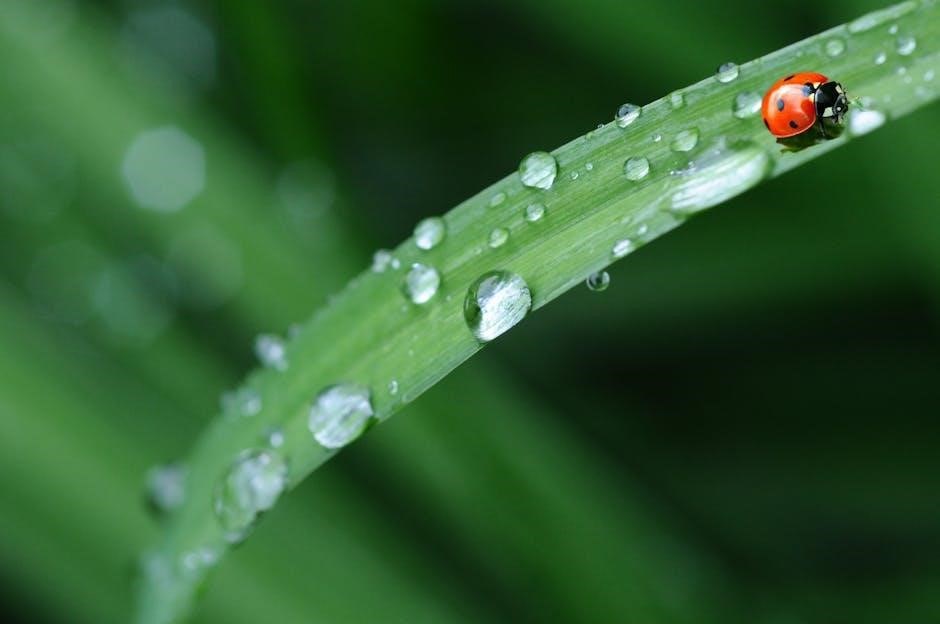Wildlife biology programs require a strong foundation in sciences, math, and field experience. Prerequisites ensure students are prepared for rigorous coursework and hands-on research in conservation.
1.1 Overview of Wildlife Biology as a Field of Study
Wildlife biology combines ecology, genetics, and conservation to study and manage animal populations and ecosystems. It focuses on understanding species behavior, habitats, and interactions to develop strategies for biodiversity preservation and sustainable resource management, blending scientific research with practical applications in the field.
1.2 Importance of Meeting Prerequisites for Wildlife Biology Programs
Fulfilling prerequisites ensures students possess essential skills and knowledge for advanced coursework. A strong foundation in sciences and math is crucial for understanding complex biological concepts, conducting research, and excelling in fieldwork, making prerequisites a cornerstone for success in wildlife biology programs and future careers in conservation and environmental science.
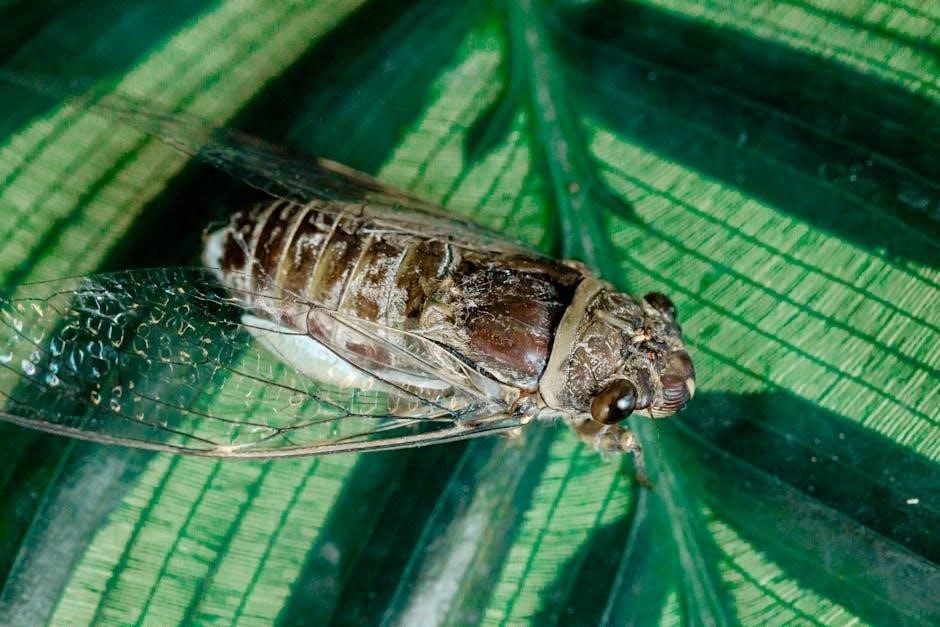
High School Course Requirements for Wildlife Biology
A strong foundation in high school sciences, including biology, chemistry, and physics, along with advanced math courses like algebra and calculus, is essential for college readiness.
2.1 Core Sciences: Biology, Chemistry, and Physics
Biology provides essential understanding of ecosystems and species. Chemistry and physics lay the groundwork for analyzing environmental interactions and biological processes. These core sciences are critical for developing a comprehensive foundation in wildlife biology, enabling students to tackle advanced topics in college programs effectively and confidently.
2.2 Mathematics Requirements: Algebra, Geometry, and Calculus
Proficiency in algebra, geometry, and calculus is vital for wildlife biology. These math courses provide tools for data analysis, population modeling, and problem-solving. Strong mathematical skills are essential for understanding ecological principles and conducting field research effectively in college programs.
2.3 Elective Courses: Environmental Science and Ecology
Elective courses in environmental science and ecology provide foundational knowledge of ecosystems and conservation principles. These courses enhance understanding of biodiversity, habitat management, and ecological interactions. They prepare students for practical fieldwork and research in wildlife biology, aligning with real-world conservation efforts and career requirements effectively.
Standardized Test Requirements
Standardized tests like SAT/ACT for undergraduates and GRE for graduates are crucial for admission. These scores help colleges assess academic readiness and potential for success in wildlife biology programs.
3.1 SAT/ACT Scores for College Admission
Submitting SAT or ACT scores is a standard requirement for most wildlife biology programs. Competitive scores often range between 1200-1400 for SAT and 25-30 for ACT, though specific cutoffs vary by institution. High scores demonstrate academic preparedness and are considered alongside transcripts and other application materials for holistic admission reviews.
3.2 GRE Scores for Graduate Programs in Wildlife Biology
GRE scores are often required for graduate wildlife biology programs, with average scores ranging between 300-320. Some programs may waive GRE requirements for applicants with strong academic records or relevant experience. High scores in Verbal and Quantitative sections are preferred, reflecting a candidate’s aptitude for advanced research and academic rigor in the field.
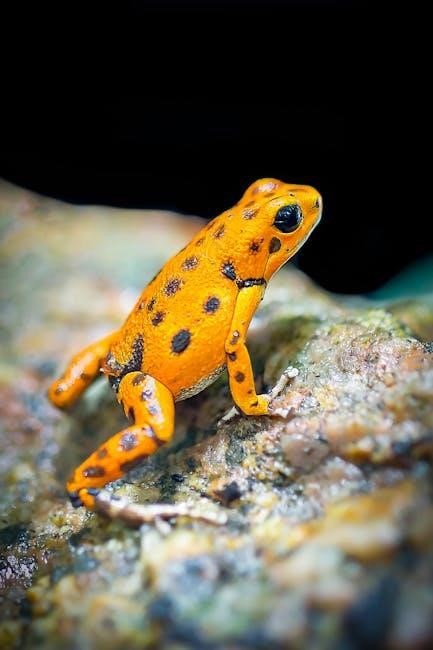
College-Level Course Prerequisites
College-level prerequisites for wildlife biology include introductory biology, ecology, organic chemistry, and biochemistry. These courses build a foundational understanding of life sciences and prepare students for advanced study.
4.1 Introductory Biology and Ecology Courses
Introductory biology and ecology courses provide essential knowledge of ecosystems, biodiversity, and biological principles. These foundational classes prepare students to understand the interactions between species and their environments, crucial for advanced wildlife biology studies and fieldwork.
4.2 Organic Chemistry and Biochemistry Requirements
Organic chemistry and biochemistry courses are vital for understanding biological processes at the molecular level. These subjects equip students with the knowledge of chemical structures and reactions, essential for analyzing biological systems and processes in wildlife studies.
4.3 Statistics and Research Methods in Wildlife Biology
Statistics and research methods are critical for wildlife biologists to design studies, collect data, and analyze results. These courses teach skills in experimental design, data analysis, and interpretation, enabling students to conduct rigorous scientific research in the field of wildlife biology effectively.
Gain Relevant Experience
Gaining relevant experience through internships, volunteering, and fieldwork is essential for building a strong resume and gaining practical skills in wildlife biology.
5.1 Internships in Wildlife Biology and Conservation
Internships provide hands-on experience in wildlife biology, offering exposure to field techniques, data collection, and conservation practices. They enhance employability by developing practical skills and networking opportunities, while aligning with career goals in wildlife management and research.
5.2 Volunteering Opportunities in Wildlife Conservation
Volunteering in wildlife conservation provides practical experience, enhancing skills in species monitoring, habitat restoration, and data collection. It fosters networking and builds a strong resume, while contributing to meaningful projects that protect ecosystems and wildlife populations, aligning with career goals in conservation biology and environmental management.
Skills and Knowledge Required for Wildlife Biologists
Wildlife biologists need strong fieldwork, data collection, and analytical skills. They must understand ecology, conservation principles, and research methods, with excellent communication abilities for reporting and collaboration.
6.1 Fieldwork and Data Collection Skills
Wildlife biologists must excel in fieldwork, conducting population monitoring, habitat assessments, and ecological surveys. Proficiency in data collection tools, GPS, and remote sensing is essential. Attention to detail ensures accurate data, crucial for conservation planning and research. Fieldwork often involves physically demanding conditions, requiring stamina and adaptability in diverse environments.
6.2 Analytical and Critical Thinking Abilities
Wildlife biologists rely heavily on analytical skills to interpret data, identify patterns, and solve ecological challenges. Critical thinking enables them to evaluate research methods, assess conservation strategies, and make informed decisions. Strong problem-solving abilities are vital for addressing complex environmental issues and developing effective management plans in dynamic ecosystems and species interactions.
6.3 Communication Skills for Reporting and Presentations
Effective communication is essential for wildlife biologists to convey research findings and conservation strategies. Proficiency in writing clear reports, presenting data, and engaging audiences is crucial. Strong public speaking skills enable biologists to educate diverse stakeholders and advocate for environmental policies, ensuring their work resonates with both scientific and public audiences.
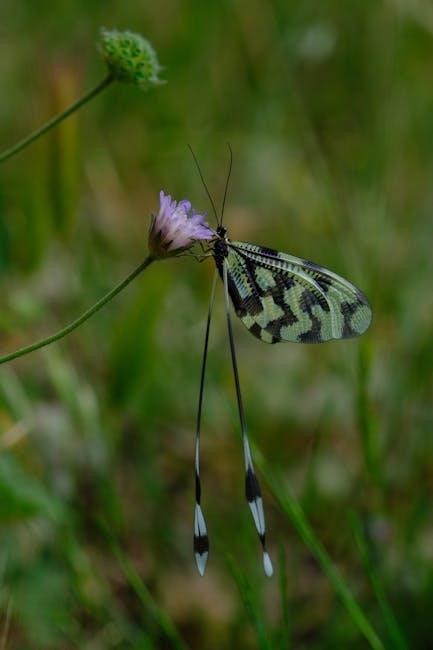
Application Process for Wildlife Biology Programs
The application process involves submitting transcripts, test scores, personal statements, and letters of recommendation to meet program requirements.
7.1 Submitting Transcripts and Test Scores
Transcripts and test scores are essential for admission. Ensure official transcripts and standardized test results are submitted directly to the institution. Verify minimum score requirements and deadlines to avoid delays.
7.2 Writing a Strong Personal Statement
A strong personal statement highlights passion for wildlife biology, relevant experiences, and career goals. Tailor your essay to align with the program’s focus, showcasing unique skills and perspectives. Be authentic, specific, and concise, demonstrating how the program will help achieve your aspirations in conservation and research.
7.3 Securing Letters of Recommendation
Request letters from professors, supervisors, or mentors who can speak to your academic and professional abilities. Provide them with your resume, personal statement, and program details to help craft tailored recommendations. Allow 2-3 months for them to write and submit, ensuring they highlight skills relevant to wildlife biology studies.
Additional Requirements for Competitive Programs
Competitive programs often require research experience, publications, and relevant work experience in conservation or wildlife biology to demonstrate dedication and advanced skills in the field.
8.1 Research Experience and Publications
Research experience and publications enhance a candidate’s competitiveness. Engaging in studies, fieldwork, and publishing in scientific journals demonstrates expertise and dedication. Such experiences often involve problem-solving, data collection, and analysis, aligning with conservation biology challenges. Publications showcase the ability to communicate findings effectively, a critical skill for wildlife biologists. This strengthens applications significantly.
8.2 Relevant Work Experience in Conservation
Relevant work experience in conservation is crucial for competitive programs. Internships, volunteering, or paid roles in wildlife conservation provide practical skills and insights. These experiences demonstrate commitment and prepare students for fieldwork, data collection, and real-world problem-solving. Employers and programs value hands-on experience, making it a key factor in admissions and career opportunities.
Financial Aid and Scholarships for Wildlife Biology Students
Scholarships, grants, and research funding are available for wildlife biology students. Many universities and conservation organizations offer financial aid to support academic and fieldwork endeavors.
9.1 Available Scholarships for Wildlife Biology Majors
Wildlife biology students can apply for scholarships like the Wildlife Conservation Society Scholarship and the National Wildlife Federation Fellowship. These programs provide financial support for tuition, research projects, and fieldwork expenses, helping students pursue their academic and career goals in conservation and environmental science effectively.
9.2 Funding Opportunities for Research Projects
Wildlife biology research projects can be funded through various grants and scholarships, such as the WCS Scholarship and National Science Foundation awards. These funds support fieldwork, data collection, and innovative conservation studies, enabling students to contribute meaningfully to wildlife science and environmental management initiatives.
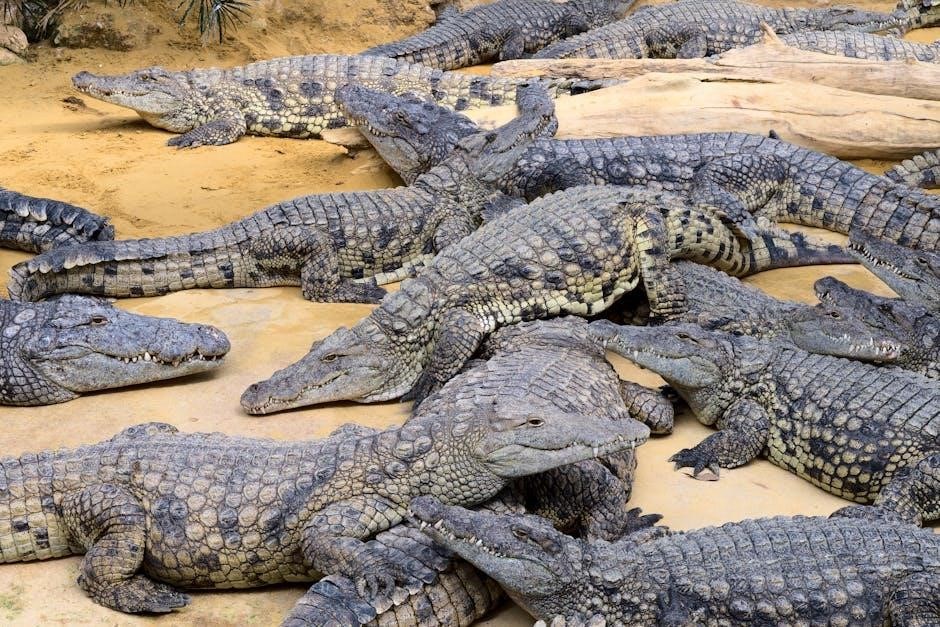
Career Opportunities in Wildlife Biology
Wildlife biologists can pursue roles in government agencies, conservation organizations, and private sectors, contributing to conservation efforts, research, and environmental sustainability across diverse ecosystems and species.
10.1 Wildlife Biologist Roles in Government Agencies
Wildlife biologists in government agencies manage conservation programs, enforce regulations, and conduct research to protect ecosystems. They collaborate with stakeholders to develop policies and ensure sustainable practices, often working in national parks, wildlife refuges, or federal offices to address environmental challenges and promote biodiversity.
10.2 Conservation and Non-Profit Organizations
Wildlife biologists in conservation and non-profit organizations focus on research, education, and advocacy to protect endangered species and habitats. They develop strategies to address environmental challenges, collaborate with communities, and implement sustainable practices to promote biodiversity and ecosystem health, often influencing policy and public awareness through their work.
10.3 Private Sector Jobs in Environmental Consulting
Environmental consulting firms employ wildlife biologists to assess and mitigate impacts on ecosystems. They conduct field studies, develop management plans, and ensure compliance with regulations. These roles often involve collaborating with clients to balance development with conservation, providing expertise in ecological assessments and sustainability practices to support environmentally responsible projects and policies.
Choosing the Right Wildlife Biology Program
Selecting a program involves considering accreditation, faculty expertise, and research opportunities. Location and access to fieldwork sites also play a crucial role in enhancing learning experiences.
11.1 Accreditation and Program Reputation
Accreditation ensures programs meet educational standards. A reputable program enhances career opportunities and credibility. Researching rankings and alumni success can help identify top institutions. Additionally, faculty expertise and curriculum quality are key factors in choosing a respected wildlife biology program.
11.2 Faculty Expertise and Research Opportunities
Finding programs with faculty who are active researchers and experts in their field is crucial. Their mentorship enriches your learning experience. Opportunities to engage in hands-on research projects can also significantly strengthen your skills and knowledge in wildlife biology, preparing you for future career challenges and academic pursuits effectively.
11.4 Location and Access to Fieldwork Sites
The proximity of a college to diverse ecosystems and wildlife habitats is essential for practical training. Easy access to fieldwork sites allows students to gain hands-on experience in real-world conservation and research settings, enhancing their understanding of ecological principles and preparing them for the demands of a career in wildlife biology effectively.
Tips for Success in Wildlife Biology College Programs
Succeeding in wildlife biology requires dedication, proactive networking, and staying updated on conservation trends. Building a strong academic foundation and engaging in fieldwork enhances career readiness and opportunities.
12.1 Building a Strong Academic Foundation
A strong academic foundation in wildlife biology involves mastering core sciences like biology, chemistry, and physics. Students should focus on structured coursework, ensuring proper sequencing and understanding of key concepts. Excelling in math and physics is crucial, as they form the basis for advanced research and problem-solving in conservation biology and related fields.
12;2 Networking and Professional Development
Networking and professional development are vital for success in wildlife biology. Building relationships with professors, peers, and professionals opens doors to internships and research opportunities. Attend conferences, join conservation organizations, and engage in mentorship programs to enhance your skills and stay informed about industry trends and career pathways in wildlife biology.
12.3 Staying Updated on Conservation Trends
Staying updated on conservation trends is crucial for wildlife biology students. Follow scientific journals, attend webinars, and participate in workshops to remain informed about emerging issues and innovations in conservation. This continuous learning ensures students are prepared to address current challenges and contribute effectively to the field of wildlife biology and conservation efforts globally.
Pursuing wildlife biology requires a strong academic foundation, hands-on experience, and dedication. Meeting prerequisites ensures readiness for a rewarding career in conservation and environmental science.
13.1 Summary of Key Prerequisites
Wildlife biology programs require strong foundational courses in biology, chemistry, and mathematics. Standardized test scores, relevant internships, and volunteer experience are essential. Students must also complete introductory ecology and statistics courses. Securing letters of recommendation and submitting a compelling personal statement are critical for admission. Meeting these prerequisites ensures readiness for advanced studies in wildlife conservation and research.
13.2 Final Thoughts on Pursuing a Career in Wildlife Biology
Pursuing a career in wildlife biology requires dedication, passion, and a strong academic foundation. By meeting prerequisites and gaining hands-on experience, students can excel in this rewarding field. Stay informed about conservation trends, network with professionals, and embrace opportunities for growth to make a meaningful impact in protecting and preserving wildlife ecosystems.
